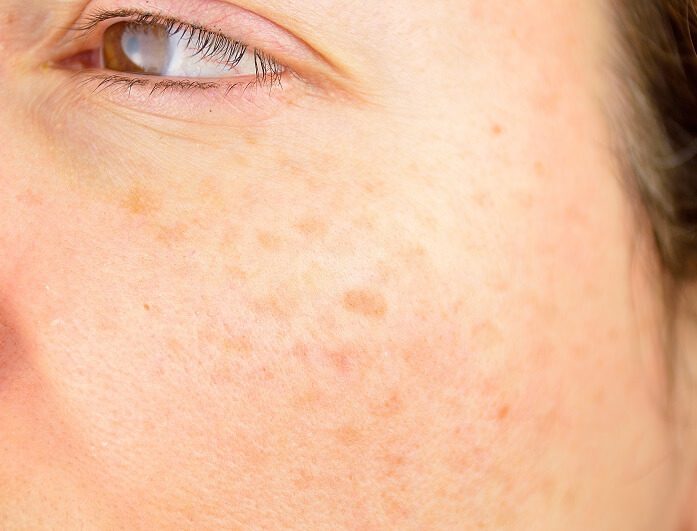SOLAR LENTIGO TREATMENT FROM DERMCONSULT
Do you have uneven skin pigmentation due to Solar Lentigo? Are you looking for ways to treat it?
Our award-winning clinic offers advanced treatment options and bespoke plans. Get in touch today to see how our specialist dermatologists can help!
Book A Consultation
LEARN MORE ABOUT SOLAR LENTIGO
WHAT IS SOLAR LENTIGO?
A lentigo is an area of skin that has more skin pigment than normal parts of the skin and thus looks darker. They are found on the most sun-exposed areas of the skin, which tend to be the backs of hands, face and lower legs. They can be yellow, light or dark brown in colour. Solar lentigenes are harmless and can often be found in people over the age of 40 years.
HOW IS IT CAUSED?
Solar lentigenes are caused by exposure to ultraviolet (UV) radiation from either the sun or use of sunbeds. This then causes an increasing number of melanocytes and accumulation of melanin (the pigment that gives the skin its colour) within your skin cells which forms darker, more pigmented spots on the skin.

Expertise
Before & After Treatment
Our Fees
We’re Always Transparent About Cost
HOW IS SOLAR LENTIGO DIAGNOSED?
Solar lentigo is fairly easy to recognise and diagnose from a quick examination by a dermatologist – they are usually flat and oval, round or uneven in shape. They can sometimes be slightly scaly and range in colour from skin coloured, to tan, dark brown and black. Their size can also vary from a few millimetres to several centimetres in diameter. A solar lentigo can be accurately identified with the use of a magnifying tool called a dermatoscope.
HOW IS SOLAR LENTIGO TREATED?
Solar lentigenes can be prevented by very vigilant sun protection. Once present, they usually don’t need to be treated. However, they may pose a cosmetic nuisance. Treatment options include cryotherapy (freezing with liquid nitrogen), hydroquinone containing creams and lasers.
Rejuvenate Your Skin
Think you might need solar lentigo treatment?
If you are suffering from solar lentigo, simply get in touch and book your consultation with our friendly team. At DermConsult we’re committed to providing the very best quality care and a personalised service for each and every one of our patients. Our experienced consultant dermatologists have a dynamic and forward-thinking approach, applying the best recent evidence when diagnosing and treating their patients.
